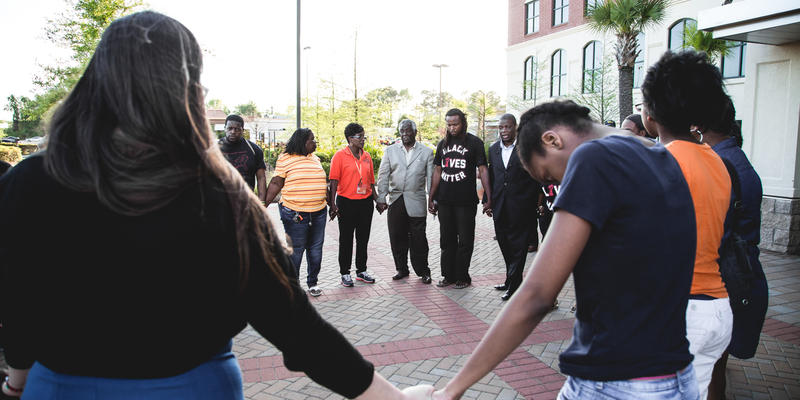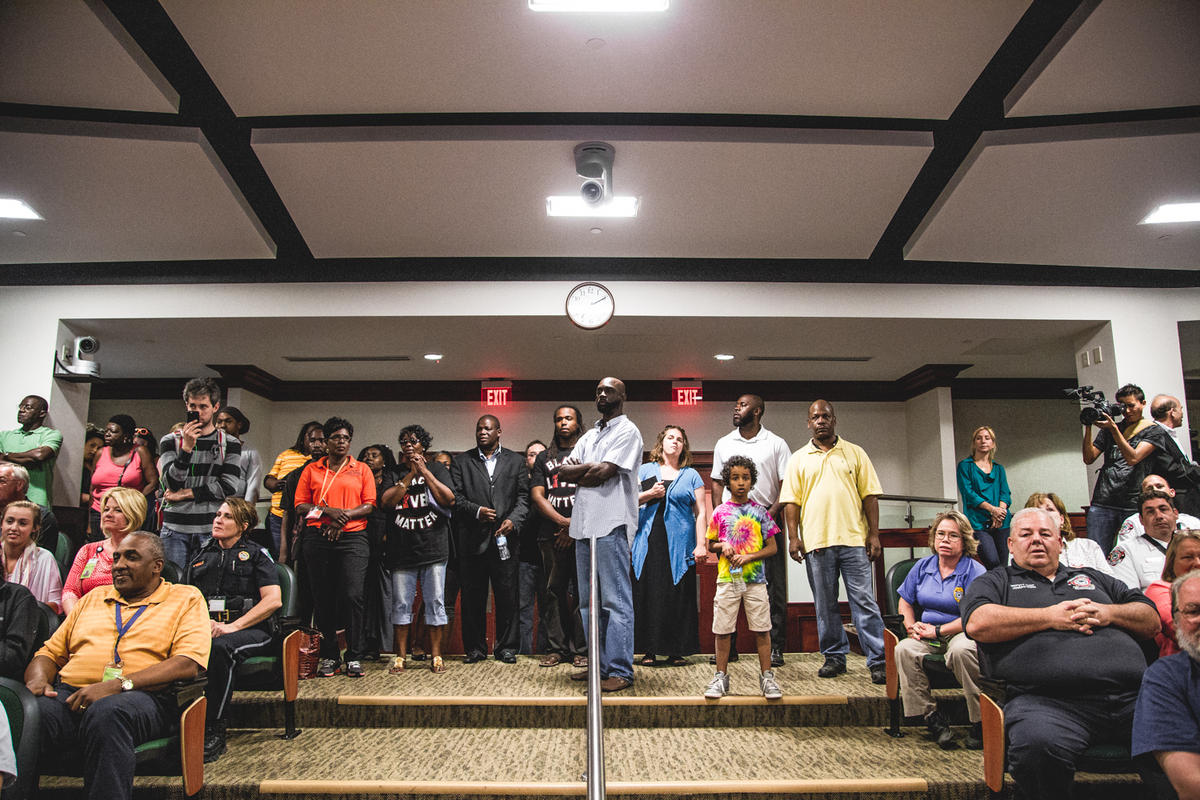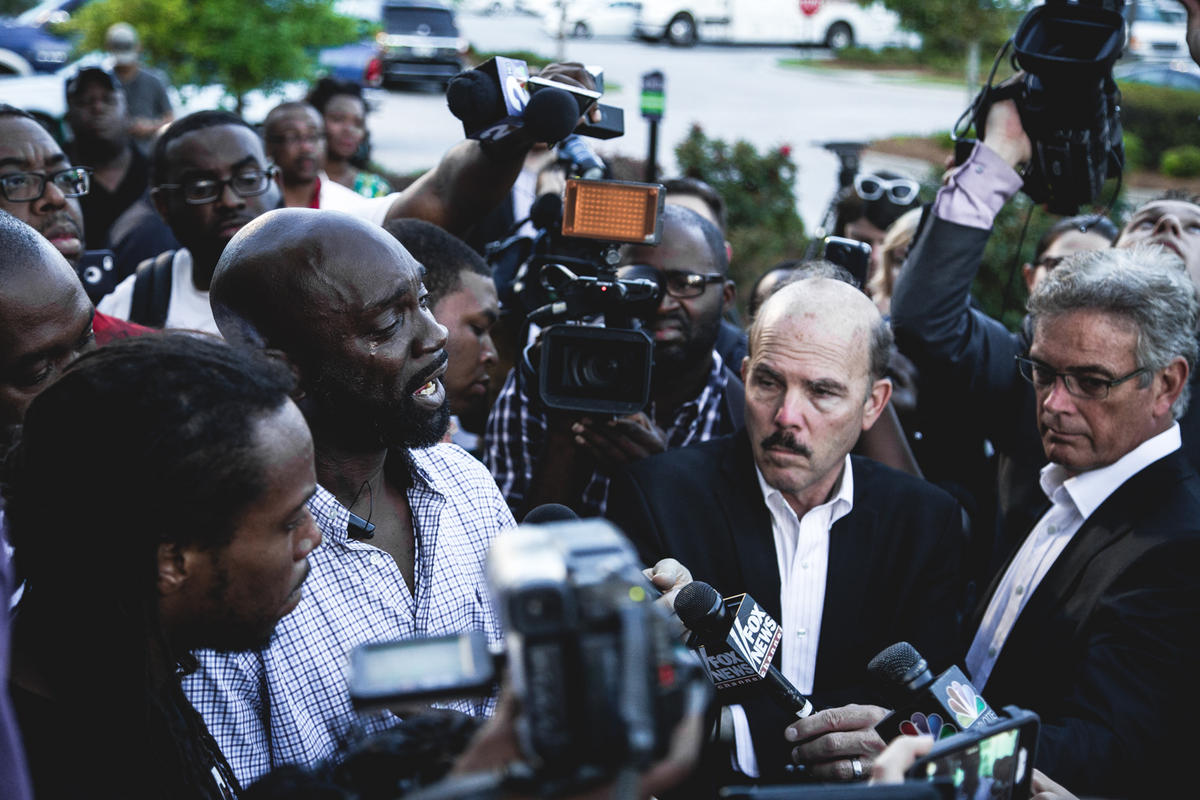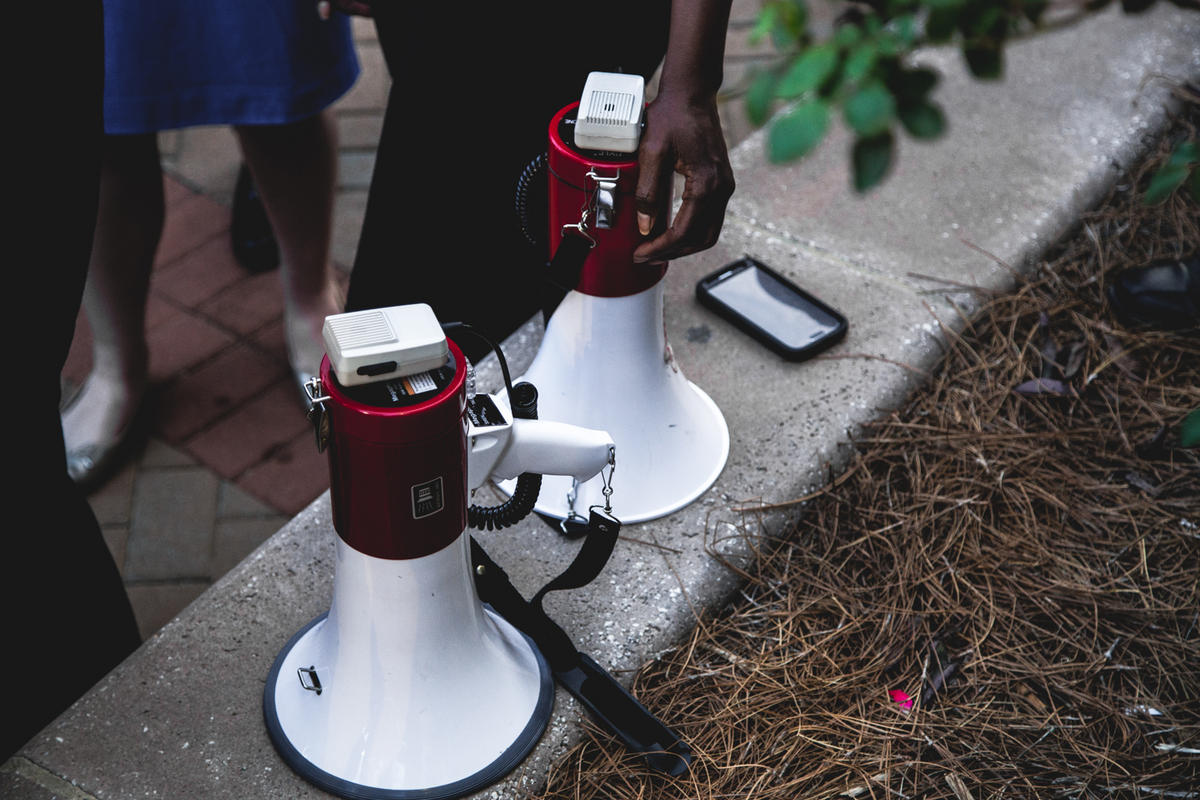
I am a blonde-haired, blue-eyed white male who went to private school. I hate authority, but I love America.
And I am naive to social injustice.
A few weeks ago, I was presented briefly with a simple view of racism (that I cannot find a source for besides the podcast Harmontown): We’re all raised and infused with biases based on our peers, community, etc. It’s how we manifest and control these biases that decide exactly how racist we are. I extrapolated this idea into my life in many social realms beyond race. I started realizing I had some pretty useless words to say regarding news stories and events without realizing it. I was, as I said, naive to social injustice. But it really took watching a man’s violent death to raise my WASPy veil.
Racial bias is not a cop-out, though. Racial bias is not a cause. Personal reaction to one’s own racial bias is the only way it can affect others.
Peer-induced racial bias does not explain what I saw in the video of the shooting death of Walter Scott. What I saw was a man—who was issued a firearm, with powers beyond a normal citizen—shoot a man in the back from several yards away as he was running in the opposite direction and his employer immediately coming to his defense. Personal accountability of this officer’s racial bias does not fully explain that, although it does factor in.
There is something that stops us from killing our fellow man that is intrinsic. It separates us from the animal that will simply kill because a switch is flipped. We have the ability to reason with ourselves, and we can view situations in rational forms of thought rather than impulse (for the most part—sometimes this ability is what jams us up and we do act impulsively). I believe, in so many words, losing that means losing your humanity, for lack of a better word.
To have time to think over a situation, raise your gun, sight in your fleeing target, and shoot them dead with a volley of bullets, not for food, personal protection, or protection of people around you, is not something that is fully explained by how one man outwardly dealt with racial bias.
What explains that is a broken system handing a trigger-happy and, perhaps, racist man a gun.

This question keeps flying around: “What would happen if there was no video?” Chalk it up to my naïveté, but isn’t that question rhetorical? Nothing would happen. I have said with the high-profile shooting deaths of unarmed black citizens that whatever exactly happened there (without video) died with them. And while true in some cases, shame on me. Because how I meant it, I may as well have said, “Well now that the dust has settled, let’s sweep it under the rug and hope someone else can deal with it later.”
So it can happen again? So racist maniacs (who can shoot people and not be held accountable the way a civilian is) around the country can perpetuate these same scenarios?
It’s unfortunate that it took an HD video filmed perfectly from the side where I watched a man get shot in the back while he was running away to believe that there’s something wrong. Up until that point, I had my foolish way of thinking, “Well, not all cops are bad.” It’s true, most police officers are not bad, but do not let that distract you from what happened. There is one bad officer here who has yet to answer to what has happened. If there is one officer who can shoot an unarmed black man in the back and attempt to cover it up, could there be more? Could there be 10? 100? 1,000? I’ve seen people come to the defense of all police officers, fighting back toward the outward display of injustice felt by millions of people. But, much like I was missing the point in many situations, could others be too? Imagine if there are just 100 bad apples in the three quarters of a million police officers there are in the United States. How many broken bones is that because one of these bad apples roughed somebody up who didn’t deserve it? How many years in prison will be served for crimes that were not committed? How many people will be killed for no reason?
Should we not look toward the system that allows this? Should we not demand power back from the people who can sometimes decide if a man can live or die? Should we not examine the sweeping racism still present in a “post-racial” America rather than claiming we’re all not racist?
If not, why? What do we have to lose? Money? You paid an accused murderer his salary through your tax dollars. You’ve paid to keep people in jail who probably don’t deserve it.
A police officer murdered an unarmed black man. (Innocent until proven guilty, I know, but I still believe my eyes here and I do judge from what I’ve seen—and I am allowed to.) We don’t need to decide if race is a factor, even if it’s simply called “benefit of the doubt” for every black civilian of this country that has been senselessly killed in similar situations. We need to side with all the Walter Scotts of the world for once. We need to side with the idea that this has happened for decades and it will continue to happen unless we all stand up. In the beginning of all this, I mentioned Harmontown, a podcast that has opened my eyes to many things thanks to its creator, Dan Harmon. Harmon said something that resonated with me during the Ferguson protests, when I was still sweeping things under the rug. While not a direct quote, it was something along the lines of “a teargas canister does not need your help.”

Suppression does not need your assistance. You do not need to assassinate the character of Walter Scott because his killer is a police officer. If you want to live up to the ideals of this country, if you want to raise it to a standard so it could ever hope to be the greatest country in the world, you should not side with the thing this country was founded to get away from. Do not side with oppression—side with the patriot, side with the martyr, and side with the civilians even if you don’t understand their plight. Side with those who have now died to show you, in high definition, that the people designated to keep you safe can sometimes be the reason you’re not. Do not make reasons as to why Walter Scott’s murder is not one of the biggest problems in 21st-century America because then we stagnate.

I am a blonde-haired, blue-eyed white male who went to private school. I hate authority, but I love America.
And I am naive to social injustice.
But I will not be blind to it.